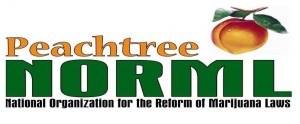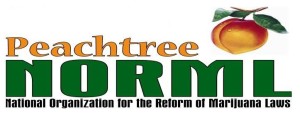October 15, 2018
One Year Anniversary
October 2nd, 2018 marked the one year anniversary of the unanimous passage of Atlanta City Ordinance 17-O-1152, which reduced the penalty for possession of an ounce or less of marijuana within the city limits of Atlanta to $75.00 and no jail time. While this ordinance isn’t a true “decrim” bill, because those arrested are still being fingerprinted, it was a great step toward sensible marijuana legislation here in Georgia.
Curiosity
I wanted to know just what effect 17-O-1152 had on “simple possession” arrests in Atlanta. After all, the ordinance didn’t make it “legal”, it just reduced the penalties. It didn’t really even “decrim”. APD officers are still free to arrest offenders and take them to jail. The question burned in my mind; “Did they, or did they use 17-O-1152 as a justification to act on a moral conviction?“. I knew where to find at least a clue to the answer.
ACDC — No, Not the Band
I have to hand it to the folks in the Records Department of the Atlanta City Detention Center (ACDC). I’ve asked them for data several times and they are always quick to respond. It seems I even have a nickname with them. More on that later …. maybe.
So last week I asked them to provide me with the following data, which they promptly did. I’ve added their response in blue:
a) The number of bookings between Oct 3, 2016, and Oct 2, 2017, where possession of one ounce or less of marijuana is an included charge: 2136
b) The number of bookings between Oct 3, 2016, and Oct 2, 2017, where possession of one ounce or less of marijuana is the ONLY charge: 952
c) The number of bookings between Oct 3, 2017, and Oct 2, 2018, where possession of one ounce or less of marijuana is an included charge: 683
d) The number of bookings between Oct 3, 2017, and Oct 2, 2018, where possession of one ounce or less of marijuana is the ONLY charge: 252
The Inference
To sum it up, personal-use possession arrests fell from 3088 to 935 the first year after implementation of this ordinance. When you do the math, that’s a 69.8% reduction. So consider these factors:
- 17-O-1152 was not directed to the Atlanta Police Department, rather to the Municipal Court.
- APD officers can still arrest
- Folks in the Metro live it like it’s legal anyway
I searched through APD’s Standard Operating Procedures and didn’t find a mention of reducing the emphasis on simple possession arrests, so that doesn’t seem to be a factor. Chief Shields may have issued an internal memo to that effect, but I’ve found no evidence of it, and I’m fairly certain that would have made its way into print somewhere. She did say publicly during the hearings associated with 17-O-1152 that possession of small amounts was not high on the APD’s priority list, and that certainly has to be taken into consideration.
So what can we deduce from this information? I think it’s simply this; Nearly 70% of cops in Atlanta really don’t have a problem with NOT arresting marijuana users and now that they have an opportunity to exercise their moral discretion, they are doing so. I think that’s significant.
Too Optimistic?
I’m optimistic by nature. I’m always looking to what’s around the corner, to what the positive, rather than the negative outcome of a situation can be. When this ordinance was passed many of you in the marijuana movement in Georgia cast aspersions on it. You felt like it was a hollow gesture, with no substance, and that it wouldn’t make a difference. Well, apparently you were wrong. ‘Nuff said.
So now I’m excited to see how this pans out in Savannah, South Fulton, Fulton County, Forest Park, and Kingsland as they reach the anniversary dates of their “decrim” ordinances. We already know that Clarkston’s City Council and Mayor Ted Terry were the first to enact such an ordinance, and their program is working well.
I’m also interested, as we all should be, in whether or not our State Legislators are listening …. or rather, who they are listening to. This is The Georgia Sheriffs’ Association’s (GSA) position on marijuana posted boldly on the front page of their website:
“The position of the GSA concerning marijuana and medical cannabis is as follows:
- OPPOSE the legalization of marijuana for all social, recreational or industrial purposes.
- OPPOSE the cultivation of marijuana for all purposes.
- SUPPORT the use of chemicals derived from cannabis for medical use for certain well defined serious health conditions.
- OPPOSE the medical delivery or application of chemicals derived from cannabis plants through smoking.
- OPPOSE legislative proposals where appropriate controls and security measures do not exist and where strict civil and criminal penalties are absent.
The Executive Vice President of the GSA is a paid lobbyist. Sheriffs and other law enforcement execs are always telling us, “We don’t make the laws, we just enforce them” and “If you don’t want us enforcing the law, get it changed.” How are we supposed to do that when phrases like “Danger, danger” and “slippery slope” and “gateway drug” are constantly being whispered in our law-makers’ ears by a paid lobbyist? Get out of our way and we WILL change the law. We’re going to change it anyway. It’s now a matter of when not if. Your Rank and File support it. I know. I talk to them.
I also find it telling that the Georgia Association of Chiefs of Police doesn’t even mention it on their website.
Tom McCain is the Executive Director of Peachtree NORML, fighting for the rights of Georgian cannabis consumers. You can visit their website at www.peachtreenorml.org, follow their work on Facebook and Twitter, and please make a contribution to support their work by clicking here.












